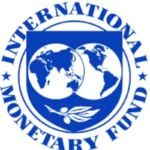Kemi, a prominent political figure, has expressed a strong stance on reducing immigration to manageable levels. Highlighting the strain on the UK’s resources, including housing, education, and welfare services, she warned that the current influx of immigrants is putting the country’s infrastructure under immense pressure. “We don’t have the housing for all of the people coming in, and we don’t have the financial capacity to look after them,” Kemi emphasized, pointing to overcrowded prisons and a strained justice system as further consequences of unchecked immigration.
While the figure for the ideal level of immigration remains unspecified, Kemi has called for drastic action to ensure that the country’s resources are preserved and managed effectively.
A significant part of the discussion focused on the ECHR’s role in shaping immigration policy. Kemi stated that while the ECHR is an influential player, it should not be seen as the only factor in implementing stricter immigration controls. “We need to look beyond the ECHR to find long-term solutions,” she said, stressing the importance of a comprehensive strategy that addresses the root causes of immigration rather than relying solely on external legal factors.
Leadership in addressing these issues was a key theme throughout the conversation. Kemi emphasized the need for a leader who can make tough decisions and navigate complex challenges. She pointed out that while immigration policy is an urgent concern, it is also essential for leaders to present clear and actionable plans, rather than offering vague promises. “We can’t just focus on one part of the problem without addressing the bigger picture,” Kemi explained.
As a candidate for Conservative leadership, Kemi made her case for why she is well-suited to lead the country through these turbulent times. “I have a strong record of delivery, whether it’s in business or politics. I can bring that same commitment to the leadership,” she stated.
She also outlined her broader vision for a conservative future for the UK, emphasizing that most people in the country align with conservative values. “We must look at what kind of country we want to be and ensure that the Britain we are building remains true to those ideals,” she added.
In addition to immigration, Kemi addressed another hot-button issue: the UK’s Net Zero policy. Specifically, she questioned the government’s proposed ban on new petrol and diesel vehicles by 2030, citing concerns raised by car manufacturers. “The push for electric vehicles may not be viable for all manufacturers, and forcing companies to comply with strict quotas could jeopardize their survival,” Kemi argued.
She suggested that the government should focus on incentivizing the transition to electric vehicles rather than imposing hard deadlines. “We need to support car companies, not just impose rules on them,” Kemi concluded.
As political debate continues to evolve, Kemi’s vision for a more pragmatic and balanced approach to both immigration and economic policy has the potential to resonate with a wide range of voters. With leadership contests in full swing, the direction taken by the Conservative Party in the coming months will be crucial for shaping the UK’s future.
Kemi’s call for transparent, results-driven leadership highlights the need for practical solutions to the pressing challenges the UK faces. As the nation grapples with economic uncertainty, social issues, and global relations, Kemi’s leadership bid offers a path forward for a party eager to regain its footing and provide effective governance.















